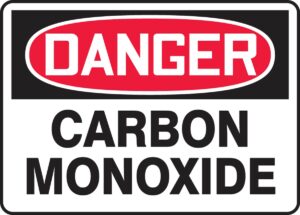Carbon Monoxide Safety Essentials – Advice from a Carbon Monoxide Lawyer in DC, MD, & VA
 Carbon monoxide kills hundreds each year – lives that could be saved with the use of a simple, inexpensive carbon monoxide detector. Lacking a detector, these victims are unaware that they are succumbing to this poisonous gas until it is too late. Carbon monoxide is tasteless, colorless, and odorless. It cannot be detected through human senses.
Carbon monoxide kills hundreds each year – lives that could be saved with the use of a simple, inexpensive carbon monoxide detector. Lacking a detector, these victims are unaware that they are succumbing to this poisonous gas until it is too late. Carbon monoxide is tasteless, colorless, and odorless. It cannot be detected through human senses.
Carbon monoxide prevents oxygen from entering the bloodstream, suffocating its victims. It bonds with the hemoglobin in red blood cells and prevents oxygen from being absorbed. High levels of carbon monoxide can kill within minutes. Lower levels of carbon monoxide can be lethal over a period of time, or can cause lasting physiological effects.
Carbon monoxide is produced when fuels do not burn completely. Car engines, fireplaces, lawn mowers, portable generators, furnaces, space heaters, and barbecue grills all can release carbon monoxide. In an enclosed area, such as a house or an apartment, small levels of carbon monoxide can quickly build up to toxic levels.
The symptoms of carbon monoxide poisoning often mimic the flu or other illness. Unfortunately, victims sometimes lay down and sleep when these symptoms strike, causing them to inhale even more of these poisonous gases. Symptoms include headaches, dizziness, weakness, nausea and vomiting, shortness of breath, confusion, blurred vision, and seizures.
Carbon monoxide detectors work very much like smoke detectors. They should be installed in hallways, near bedrooms, and in every level of the home. They detect dangerous levels of this odorless, colorless, and tasteless gas and produce a piercing sound if it is detected. If your carbon monoxide detector goes off, it is important that you go outside immediately, even if you do not notice any symptoms of poisoning. Leave the premises, call 911, and do not enter again until emergency personnel say you are safe.
Prevention of carbon monoxide poisoning is the best cure! Install carbon monoxide detectors in your home, near bedrooms and on every level of the house. Do not leave you vehicle idling in the closed garage, have your furnace or heater inspected annually, and only use proper fuels in heaters. Always leave your flue open when operating the fireplace, and never use portable gas stoves or generators inside your home. When it comes to carbon monoxide poisoning, an ounce of prevention is worth a pound of cure!
Our experienced lawyers at Cohen & Cohen are ready to handle your carbon monoxide poisoning case. If you or a loved one have been injured by carbon monoxide poisoning, please contact us today.




